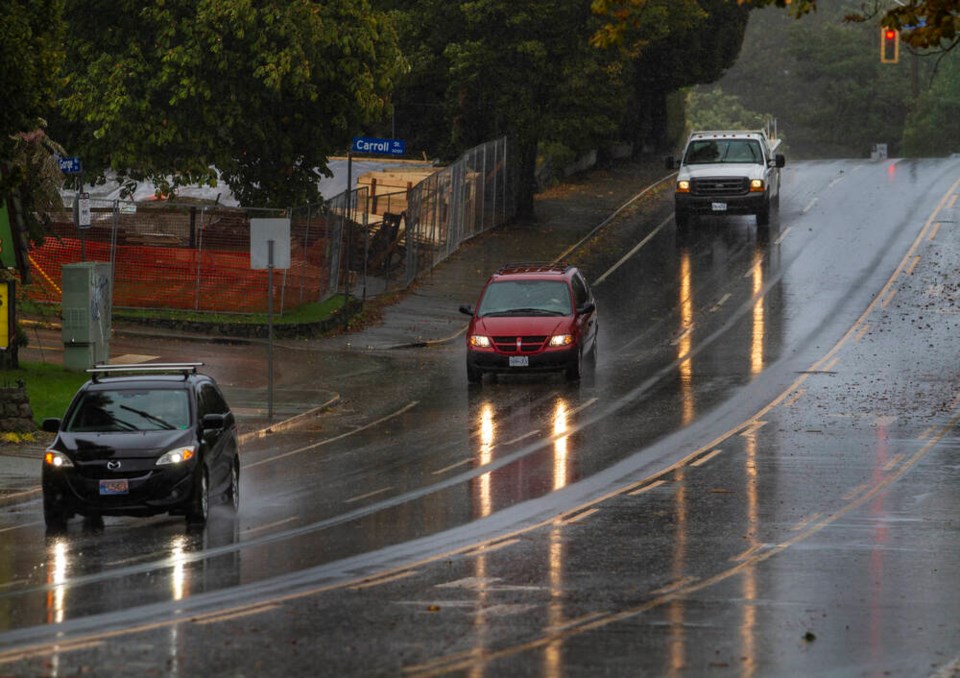One day when I was young and stupid I decided to drive all the way from Terrace to Tsawwassen in one 18-hour shot. I didn’t need to do it that way, but behind the wheel of my ‘67 Pontiac 2+2 coupe I was invincible. I just wanted to get it over with and get home. No need to stop, except for gas, because a 21-year-old in a cool car can do anything — just ask them.
Clearly, I made it home as I’m able to write about it today. But it was one of the poorest decisions I ever made in my driving life.
It all went well until nearing Boston Bar. It was around 1 a.m. By that time my head was starting to loll around with fatigue. I started seeing double along that darkened stretch of the Trans-Canada as it winds through the Fraser Canyon, but I was sure I could make it. There were only a few more hours to Tsawwassen.
Suddenly, there was a huge moose right in front of me, no more than six metres away. Having no time to react, I drove right through it. Strangely, I felt absolutely nothing. That’s because there was nothing there. I was hallucinating. Even 21-year-old knuckleheads reach a point where they figure things out. It was time to pull over and take a break.
Driving drowsy is pretty much as bad as driving impaired. Surveys over the past decade show that 20% of Canadians admit to driving while they were drowsy. Some research indicates it’s actually closer to 60%. The Canadian Council of Motor Transport Administrators says that 21% of our collisions are caused by driver fatigue.
That amounts to around 400 deaths and 2,100 serious injuries every year, which would make drowsiness the 3rd highest cause of collisions, behind alcohol impairment and speed-aggressive driving.
You can be affected by two types of driver fatigue.
One is “sleep mode” where a driver is actually under-stimulated by a long boring drive and too much time behind the wheel without a break. You become less and less aware, the brain starts giving less attention to basic driving tasks and drowsiness sets in. That was my problem near Boston Bar.
The other is “overload mode” where a driver is actually over-stimulated by the environment such as heavy traffic, road construction, screaming children in the back seat and maybe even trying to answer texts on the smartphone. Overload leads to fatigue in terms of irritability and loss of judgment. This is the domain of the classic road rager and aggressive drivers.
In either case they raise the probability of a collision dramatically.
As a drowsy driver you are likely to commit most if not all of the bad driving sins. Investigations show that driving behaviour just before a drowsy driving crash included: frequent and often unexplained lane changes; sudden braking; ignoring traffic lights and road signs and; frequently changing speeds for no reason.
According to the Traffic Injury Research Foundation of Canada the most dangerous effect of drowsy driving is, of course, falling asleep. They make the point that at 100 km/h you travel at 150 metres in a mere six seconds. That’s longer than a football field. So even a six second nod-off means you’ve travelled nearly an entire kilometer with your eyes closed.
Naturally, like most other driving errors, drowsiness is often done in combination with drinking and driving which means that those collisions mostly occur at night and with young drivers behind the wheel.
Potential drowsy drivers should understand the risks and self check.
Appreciate the possible effects that any medication you are taking might have on your alertness in driving somewhere, particularly a long distance trip.
How much sleep have you had in the past 24 hours? Sleep deprivation for a full day can equal an alcohol impairment level of 0.10.
Are you fighting yourself to stay awake or actually nodded off for a second or two? Definitely time to pull over or let someone else do the driving.
Are you yawning excessively or having difficulty maintaining concentration — missing turns or signs along the road? Worse still, have you forgotten where you drove a few minutes previously.
Most studies show that people grossly under-estimate how tired they actually are at times when they start driving, so a high degree of self awareness and caution are essential beforehand.
Please don’t be like that dopey 21-year-old waiting till your head is nearly falling off of your shoulders or an imaginary moose is popping out right in front of you. If you’re tired, even a little, pull over for a while, grab some rest and make it to wherever you’re going.




